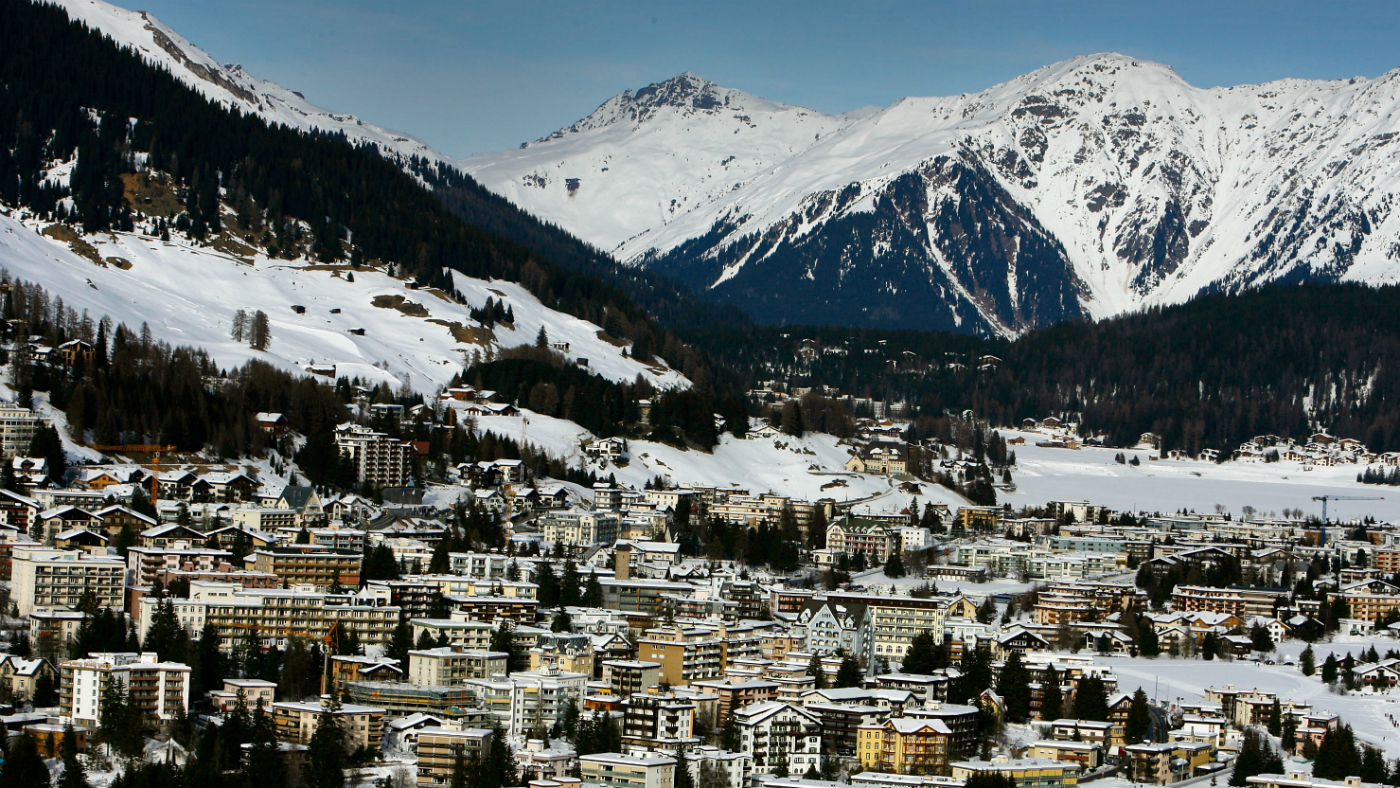Davos 2018: what’s on the agenda at the World Economic Forum?
In Depth: from all-female chairs to diplomatic snubs, this year’s WEF could be a game changer

A free daily email with the biggest news stories of the day – and the best features from TheWeek.com
You are now subscribed
Your newsletter sign-up was successful
World leaders, finance ministers, chief executives and even a few Hollywood stars are heading to the small Swiss town of Davos this week to discuss the geopolitical changes shaping our lives.
Prime Minister Theresa May and German Chancellor Angela Merkel will be among the rich and powerful 2,500 delegates at the 2018 World Economic Forum (WEF), along with the leaders of Canada and France - but it is US President Donald Trump who is expected to take centre stage.
What’s on the agenda?
The Week
Escape your echo chamber. Get the facts behind the news, plus analysis from multiple perspectives.

Sign up for The Week's Free Newsletters
From our morning news briefing to a weekly Good News Newsletter, get the best of The Week delivered directly to your inbox.
From our morning news briefing to a weekly Good News Newsletter, get the best of The Week delivered directly to your inbox.
Cybersecurity, weapons of mass destruction, the global economy and climate-related challenges are priority issues this year, reports Bloomberg. Trump is likely to be a hot topic as well, with his very presence set to “stoke anti-American feelings on the Continent”, says the Financial Times.
Artificial intelligence, the digital economy, poverty, conflict and the gender pay gap are also on the agenda, according to the forum’s website, along with alternative talks on neuroscience, scientific innovation and virtual reality technology.
Rubbing shoulders with the world’s most elite power brokers comes with a hefty price tag, The Sun says: “While economists, politicians and journalists are invited, businesses have to pay around $40,000 (£29,000) to send a single delegate to the event.”
What makes this year special for women?
A free daily email with the biggest news stories of the day – and the best features from TheWeek.com
For the first time in the 48-year history of the forum, this year’s event is being chaired entirely by women. The team of seven co-chairs include International Monetary Fund director Christine Lagarde, IBM chief executive Ginni Rometty and Norwegian Prime Minister Erna Solberg.
The decision is reportedly a response to previous criticism over a lack of female representation - a claim that led to the derogatory term “Davos Man”, which has been “used to refer to elite, wealthy men that attend the event”, says the CNBC website.
Solberg told CNBC that she was “particularly concerned about the need to create a sustainable welfare society” and that “inclusive growth is essential to reach that goal”.
Co-chair Sharan Burrow, the general secretary of the International Trade Union Confederation, added: “Davos Man needs to listen if he cares about his families and particularly about the question of equality and equal opportunity for his daughters.”
What is the significance of Trump attending?
As The Times points out, the US president “does not have to attend” the forum - his predecessor Barack Obama never did. For Trump to do so may be seen as the “ultimate betrayal” of his former chief strategist Steve Bannon, to whom the Davos delegates represented the “supreme enemy”.
“[To Bannon] Davos was more than just an annual jamboree for smug politicians and business people,” the newspaper says. “It was a movement engineered by out-of-touch plutocrats with an ‘elite mentality that they’re going to dictate to everybody how the world’s going to be run’.
“It was to be resisted at all costs. And now the very man he thought would help him tear the temple down is going there to worship.”
What does May have planned?
Trump is to deliver a speech on the last day of the event and has meetings set with French President Emmanuel Macron and Swiss President Alain Berset. The British PM has also secured a last-minute appointment with Trump, but he was reportedly “lukewarm” about the meeting.
May will try to “clear the air” with the US president, The Sunday Times reports. Trump is said to be “furious” following a series of clashes with the British government, including criticism by May of his decision to retweet anti-Muslim videos, and the leak of a dossier compiled by a former MI5 spy about a Trump trip to Moscow before he became president.
May will also be seeking to get other world leaders and business bosses on side in the run-up to Brexit.
Last year the PM used the forum to lay out her vision for the UK to champion free markets and free trade while ensuring globalisation works for a wider range of the world’s population.